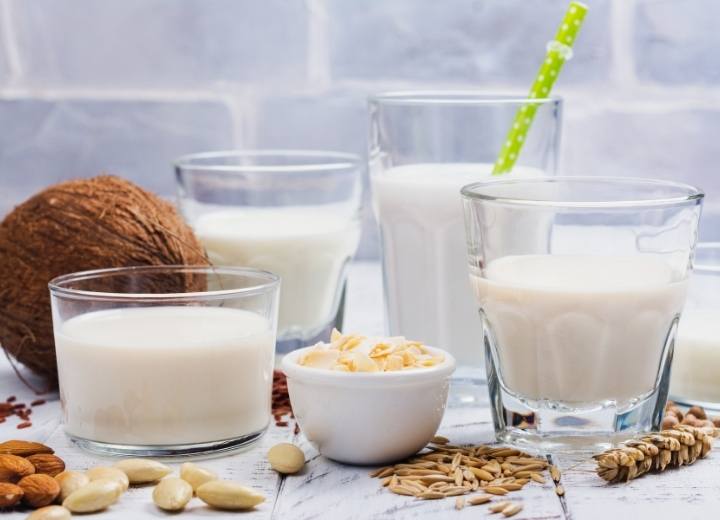Can a vegan drink milk? The exact answer depends, as there are vegan and non-vegan types of milk.
However, are you wondering which milk is suitable for you as a vegan? Read on to discover the vegan milk list and further explanation.
Can A Vegan Drink Milk? Why?
While vegan diets are becoming more and more popular, understanding all of the rules and constraints may still be challenging. Vegans don’t drink milk for various reasons, some of which are related to one another.
To be more specific, vegans do not consume any products from animals in any way, such as pork, beef, or chicken. Milk that comes from cows is no exception for vegans.
In detail, the milk-making process not only exploits cow labor by removing something that is intended to be ingested by their young.
But it also causes them pain that stands as a form of animal cruelty. After answering the question “Do vegan drink milk?” let’s move on to the next part for substitutes for cow milk!
What Are Types Of Vegan-Friendly Milk?
Luckily, there are many new milk substitutes on the market nowadays, ranging from almond milk to rice milk—each with its own set of benefits and cons.
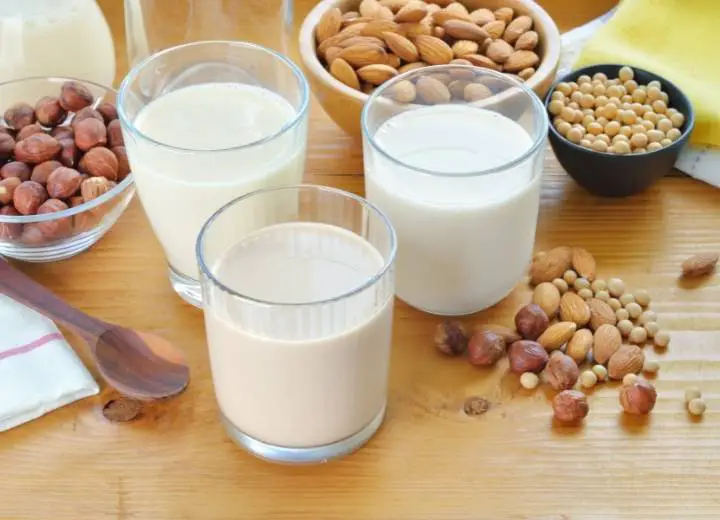
Here’s a brief overview of a few common milk alternatives and their influence on your health and the environment.
Here are four substitutes for cow milk we want to share:
#1. Soy Milk
Soy milk, which is low in fat and free cholesterol, is one of the most naturally nutritious milk substitutes.
Even though it does not have the same amount of calcium as ordinary milk, you can easily find the “upgraded version” of soymilk, which contains additional calcium, protein, and vitamins at the supermarket.
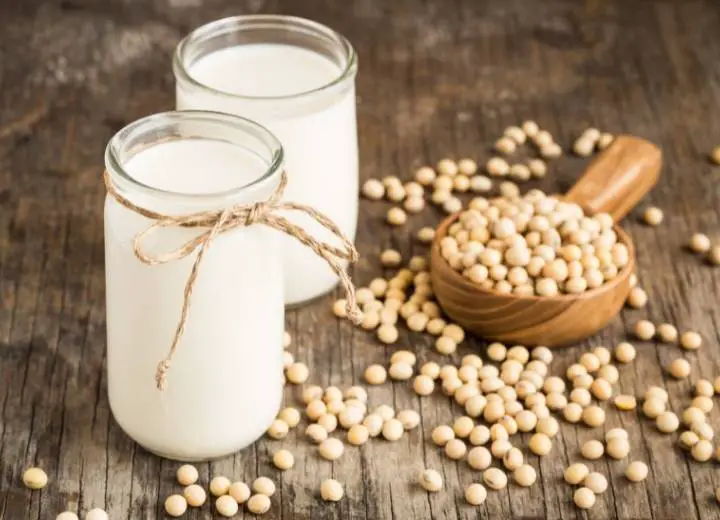
Moreover, soy milk is also a great cooking ingredient in simple and delicious recipes such as pancakes, oatmeal, smoothies, etc.
When using soy milk, keep in mind that the soy farming and soy-making process possibly affect the surrounding environment.
In detail, farmers must use a lot of water to raise the soy, and rainforests have been destroyed to create more space for the plant.
As the soy business expands, more soy gets genetically engineered and pesticide-treated. If you want to include soy milk in your diet, seek organic soy milk to reduce the impact on the environment.
#2. Almond Milk
Almond milk includes half the calories of ordinary dairy milk. It is extremely adaptable, allowing it to be used in smoothies, porridge, and even conventional cooking.
Also, almond milk is gluten-free and the best fit for sweets and beverages.
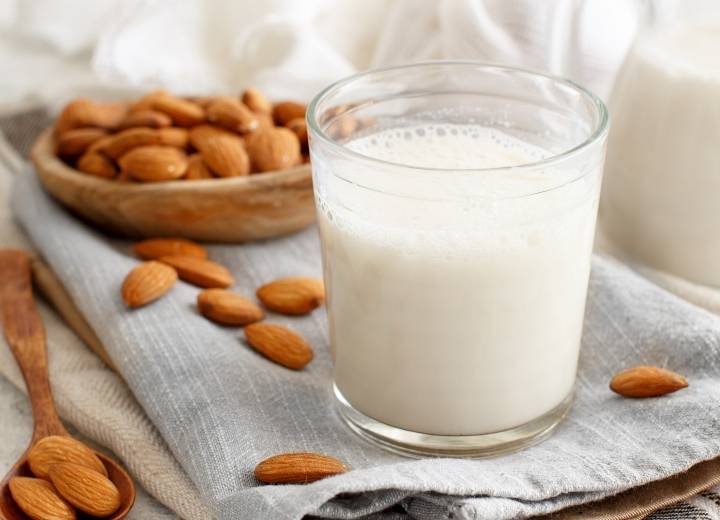
In terms of nutrition, almond milk does not contain much of the protein and calcium in the original almonds, but you do not need to worry; you can get the enriched one with both of these nutrients and high levels of Vitamin D in any market.
If you prefer non-fortified choices, make sure you acquire those essential vitamins from other sources.
Compared to other options, almonds are extremely water-intensive. To create one nut, it needs around 1 gallon of water.
Almonds are farmed predominantly in California in the United States, which is particularly problematic during droughts.
However, they are still a better alternative for the environment and consume less water than dairy from cows.
#3. Coconut Milk
Coconut milk is a popular and creamy complement to meals derived from coconut flesh’s liquid. It is fantastic for soups, curries, coffee creamer, and vegan ice cream, etc.
Coconut yogurt and coconut cheese are also a favorite food of both vegan and non-vegan. Coconut milk is naturally sweet and carb-free.
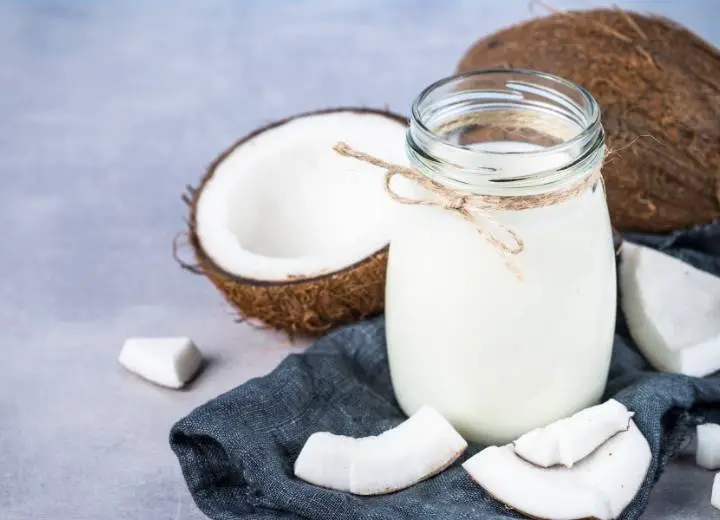
One of the nicest things about this type of milk is how little impact it leaves on the environment compared to almond and soy milk.
The greater the number of coconut trees grown, the more carbon is collected from the atmosphere.
Hence, this reduces the harmful effects of greenhouse gases in the environment while also enriching the soil.
#4. Rice Milk
This milk is a fantastic option for those who allergic to nuts and wants a similar flavor to conventional milk.
Personally, we believe it has the closest flavor to ordinary dairy milk, although it is much thinner. Making rice milk is also simple, just by boiling rice and adding some sugar if you want a sweet taste.
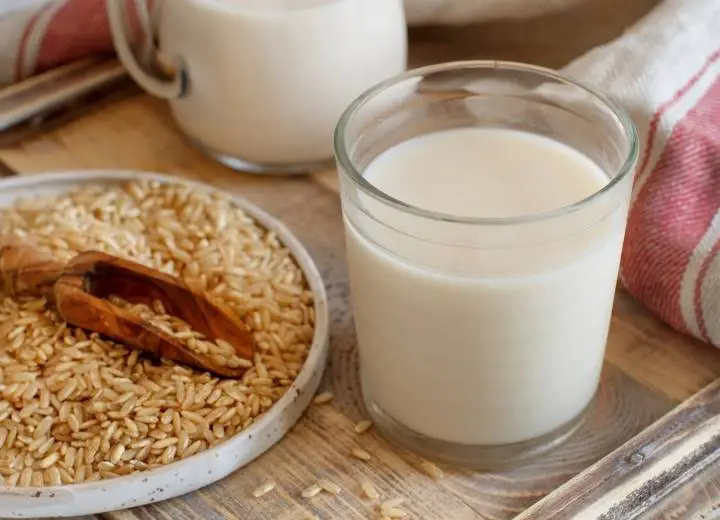
Furthermore, the smoothness of rice milk is ideal for soups and sauces, but it can be too sugary for savory foods. It is tough to replace without adding flour or anything to thicken it because it’s so watery.
Meanwhile, rice farming needs a lot of water, which is problematic during droughts.
Luckily, farmers have utilized environmentally friendly techniques and irrigation technologies because of the long tradition of rice farming across the world.
There are various vegan milk alternatives available, some of which are more suited to certain applications than others.
We have gone over this in greater depth in our major post on vegan milk replacements, but the above list is only a few more common options.
The Final Verdict
Now you certainly have the answer to the question: “Can a vegan drink milk?”. Most vegans find it difficult to give up milk and all of its derivatives.
Still, no one ever claimed life was simple, isn’t it? Or you can simply use the cow milk alternatives we’ve mentioned above to make your meal more tasty and full of nutrition.
Reference:

